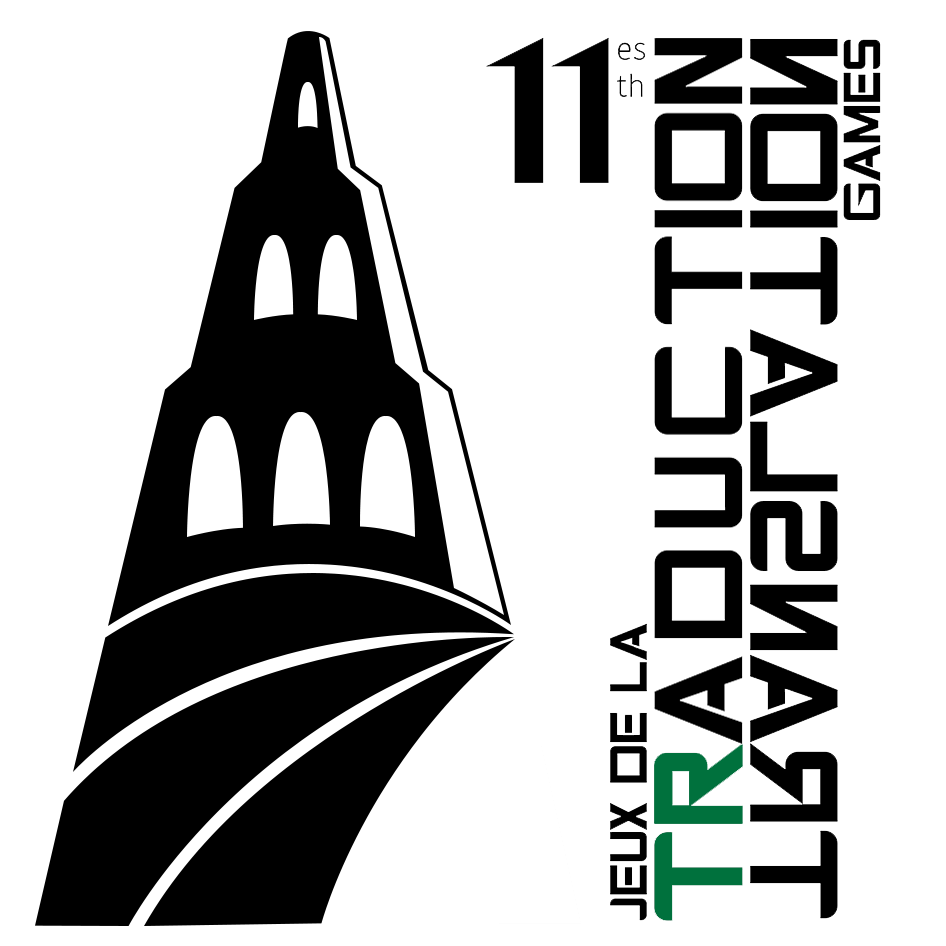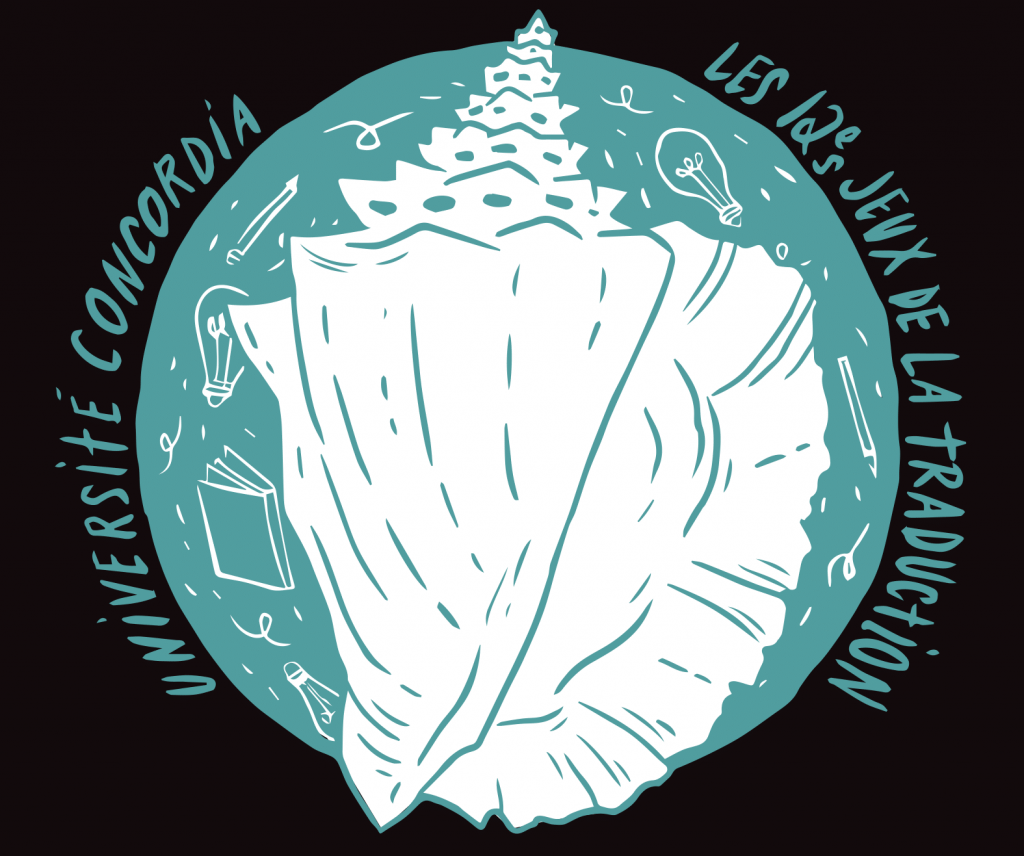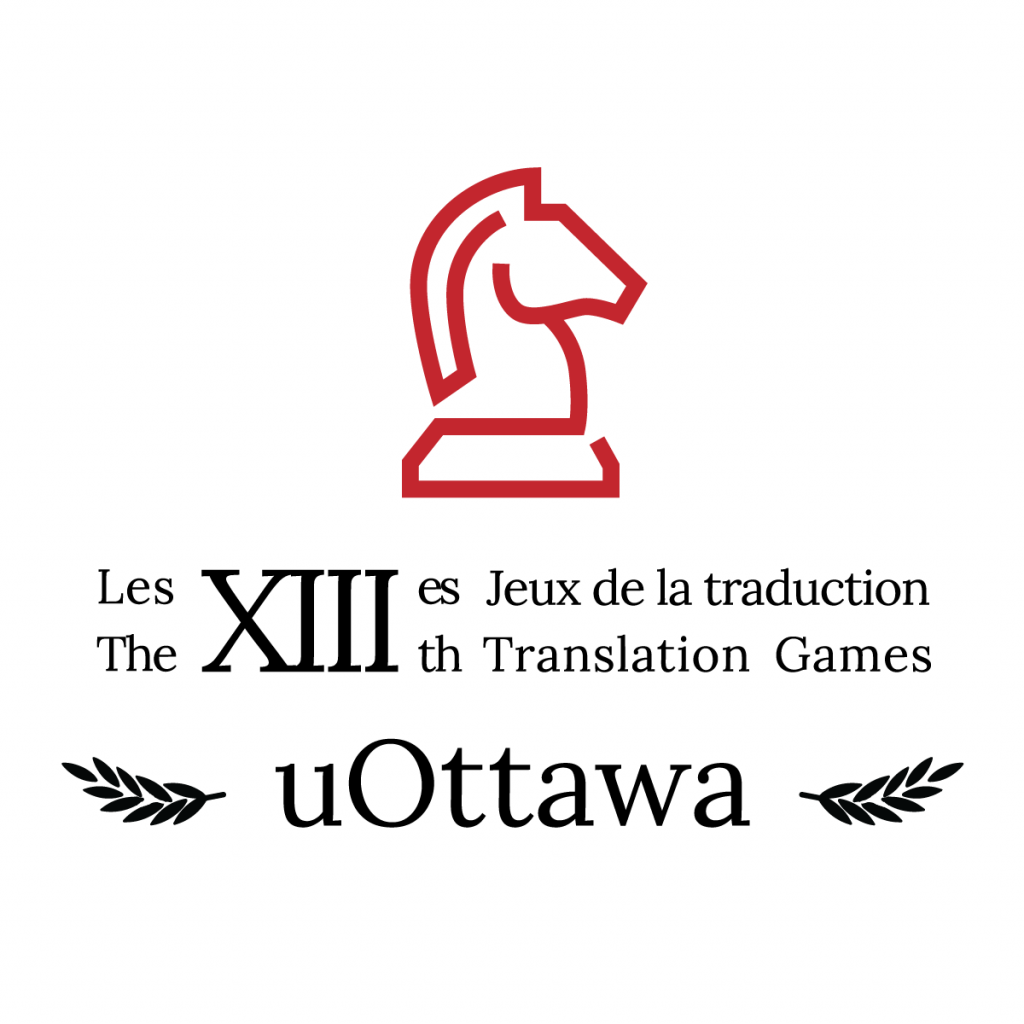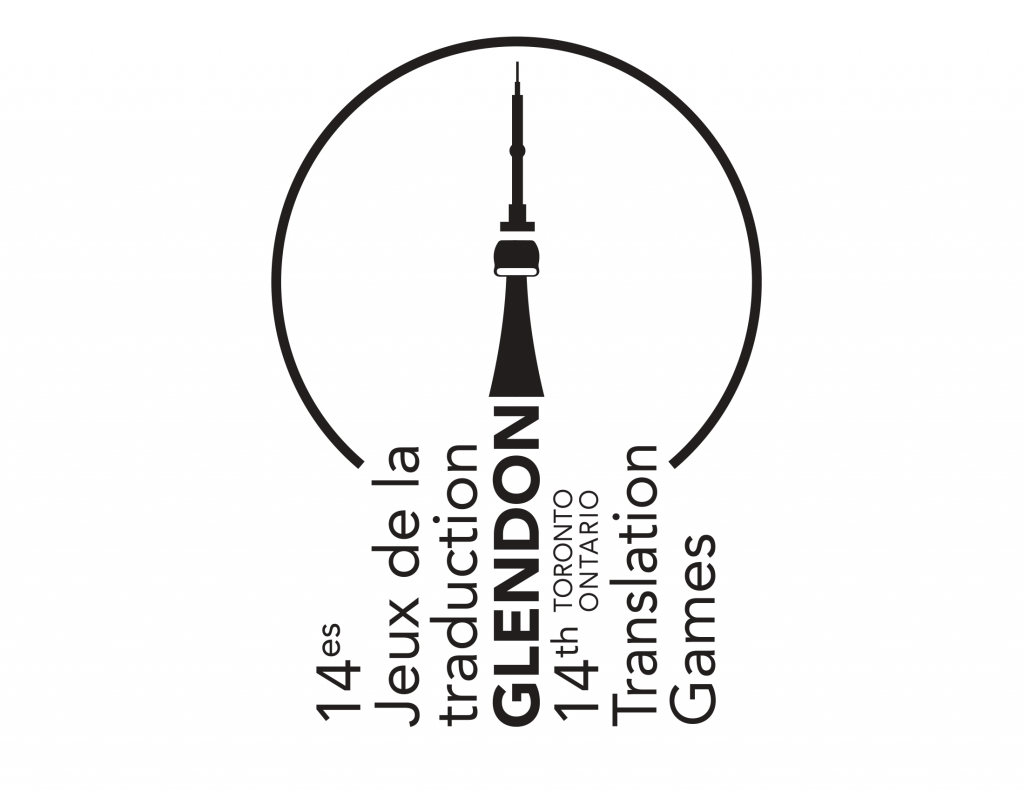Want to learn more about this friendly competition?
Here's a brief timeline
The Translation Games were first held in 2006 at the Université de Montréal, thanks to an initiative by its Association of Translation Students. Five universities participated: Concordia University, Université de Montréal, Université du Québec en Outaouais, Université Laval, and Moncton University.
Even in this first edition of the Games, participants sunk their teeth into challenges that have now become staples of the Games, like literary, song and audiovisual translation. The first Games also included other well-known challenges, including comic strip translation, relay translation, the revision challenge, and back-translation, which involved figuring out the original source text sentence based on a weird, inaccurate translation.
Teams could also collect points at the basketball and dodge ball tournaments, as well as a trivia game.
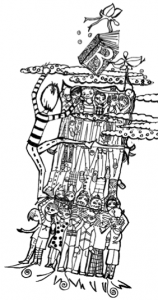
Five teams faced off in the 2nd annual Translation Games in Québec City: the host team, Université Laval, along with Concordia University, Université de Montréal, Université de Moncton, and Université du Québec en Outaouais.
Université Laval repeated the classic challenges, while also introducing new ones such as defining neologisms. This was also the first time that the Gerry-Boulet prize for team spirit ("The Gerry") was awarded. Why Gerry-Boulet? Well, rumour has it that the Université Laval team, having forgotten to prepare their group sketch for the first Games, had managed to adapt the lyrics to a Gerry Boulet song, called Les yeux du coeur, on the spot. The adaptation, called Les yeux du traducteur, was such a success that the chorus quickly became the Games’ anthem. As for Gerry Boulet, he subsequently became the mascot of team spirit and solidarity showcased by the Université Laval team.

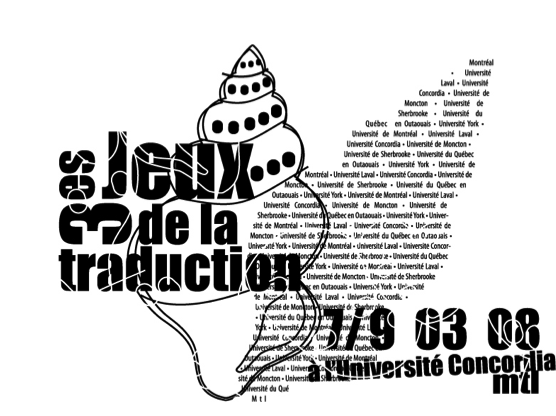
🕮
Six universities joined Université du Québec en Outaouais for the 4th Translation Games: Concordia, Laval, McGill, Montréal, Moncton and Ottawa. On Sunday, the students took part in Tai-Chi and improv. In sports, had to tackle their way through all the hasbeens. 2009 was also the year that the term hasbeens, was first used to refer to former participants who still wanted to attend the Games. Hasbeens had, in fact, attended Games before here and there, but in 2009, dozens of hasbeens showed up. McGill left its very first Games with the coveted Gerry-Boulet prize and the task of organizing the 2010 Translation Games!
🕮
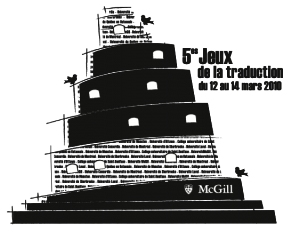
Organized by McGill University, the 5th Translation Games welcomed nine delegations from all over the country: Université de Saint-Boniface, Concordia University, Université Laval , McGill University, Université de Moncton, Université de Montréal, Université de Sherbrooke, University of Ottawa and Université du Québec en Outaouais. The 9 universities faced off against a series of individual and group challenges in English and French: literary translation, translation of general texts, dubbing and subtitling, specialized translation, localization, advertisement adaptation and songs. This was also the only time the Games were held entirely at the hotel since it was impossible to book enough spots on campus!
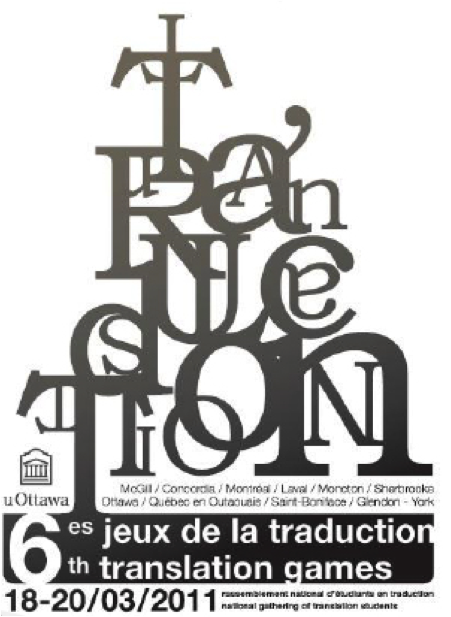

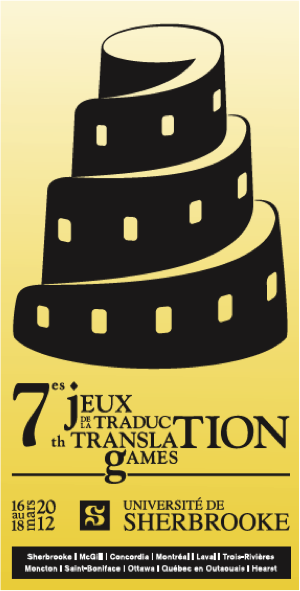
The 2012 Games, organized by l’Université de Sherbrooke, welcomed nine teams for a weekend that put its participants’ neurons to the test. The 7th Translation Games incorporated the revision challenge once again, and introduced a new challenge, constraint translation, where participants have to work with various restrictions, such as a limited number of words or characters, a restricted register or specific page formatting. The Sherbrooke Translation Games also marked the beginning of the Université de Hearst’s participation: they sent representatives to observe this huge event.
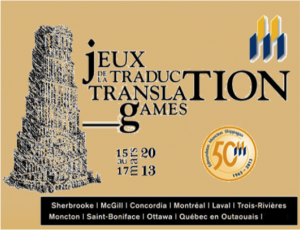

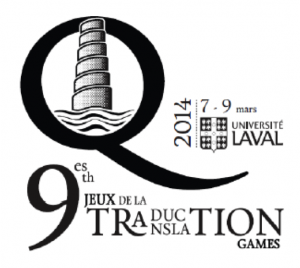
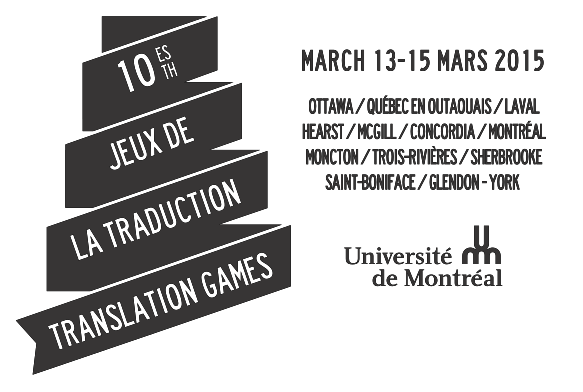
In 2015, the Translation Games organizing committee challenged 10 universities to translate masterpieces! They invited the students to get their creative juices flowing to take on mystery challenges. This year, Concordia was the star of the Games: they won the Gerry-Boulet prize for best team spirit, as well as prizes for best individual translation into French and best individual translation into English, as well as the Translation Game’s cup for the team with the highest points. It was the first time a single team won the top prizes in every category.

